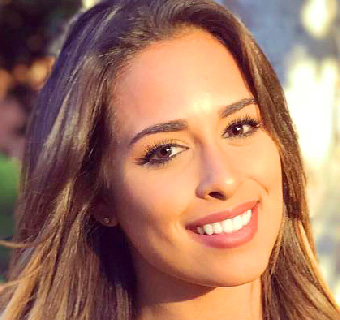Table of Contents
Influencer marketing in Saudi Arabia has taken off recently due to a series of social and cultural events that opened the Kingdom to the rest of the world. Prospective visitors can now apply for tourist visas to enter the country for leisure, vacation, and cultural trips, which before 2019 was forbidden (unless you had a job in the country). This has resulted in the growth of hotels, travel destinations, and entertainment venues. So, naturally, the influencer marketing industry has exploded alongside it.
Saudi social media influencers have seized the opportunity to work with brands looking to enter the market through culturally relevant messaging and relatable content. But as more Saudis flock to social media and begin to profit from their Instagram and TikTok accounts, the Kingdom has launched a new licensing system to properly monitor the influencer industry.
Here Is What You Need To Know
Starting in October 2022, every Saudi and non-Saudi content creator in the Kingdom who earns revenue through advertising on social media must first apply for an official permit from the General Commission for Audiovisual Media (GCAM).
For a fee of SR15,000 (~ $4,000 USD), content creators will receive a 3-year permit which gives them the right to work with as many private entities as they wish and promote any product or service, as long as it does not violate the Kingdom’s laws or values. The new system is intended to better regulate the industry and help ensure that only qualified individuals are permitted to work as content creators – and that they do so responsibly.
There are approximately 25,000 creators with over 10,000 followers based in Saudi Arabia on Instagram and an additional 200,000 on TikTok.
Different Paths For Residents vs. Non Residents
Saudi influencers, whether based locally in Saudi Arabia or abroad, need to apply for the permit if they wish to work with a brand and get paid — regardless of whether the brand/company is locally based or international. For non-Saudi residents, however, the process is a little different.
Non-residents must first apply to the Ministry of Investment for a permit to work in the country, (known as a SAGIA License) then they can then apply for an influencer permit through GCAM. The catch is that non-Saudi residents must be represented by specific advertising agencies.
In June 2022, a new regulation prohibited non-residents from posting ads on social media without a license. Ignoring the law could yield a possible five-year prison sentence and fines of up to SR 5,000,000 (~$1.3M USD).
Although Saudi influencers will be able to hold full-time jobs while earning side income through influencer marketing campaigns on their social media profiles, the regulation states that non-Saudis can work only in one specific role while residing in the Kingdom. They will have to choose between being a full-time content creator or working elsewhere.
According to Stavriana Nathanail, the Head of Opium Works (a Digital Marketing Agency based in Cyprus) many Saudi-based content creators and brands would travel outside of the country to post content and collaborate in nearby destinations such as Greece and Cyprus. The new regulation aims to keep digital commerce inside of the Kingdom, so long as it is compliant.
Looking to run an epic influencer marketing campaign? NeoReach has the best experience in creating viral campaigns that convert on social media. Sign up here!
Assessing This New Regulation – Will Other Countries Follow Suit?
With Saudi Arabia progressing in the entertainment and creative industries, the introduction of the license is viewed internally as a step in the right direction amid increased scrutiny of social media influencers around the world. In September, the U.S.-based Federal Trade Commission (FTC) sent out more than 90 letters to celebrities and other social media influencers reminding them of their obligations under federal law to disclose any material connection they have with brands they endorse on their platforms.
The new regulations are being touted as legal protections, for both influencers and businesses wishing to advertise with them. This move ensures that rates and contractual obligations are standardized across the industry.
Dubai, which is fast becoming the influencer hub of the Middle East, already had similar regulations in place as far back as 2018. UAE’s National Media Council’s electronic media regulation system requires social media influencers to obtain an annual license for 15,000 AED (roughly $4,000) with penalties including a fine of up to 5,000 AED, a verbal or official warning, and even closure of their social media accounts. Similar to Saudi Arabia, influencers visiting the UAE must either have a license or be signed up with an NMC-registered influencer agency to operate in the country.
Living in Saudi Arabia or Plan To Visit? Make Sure You Are Prepared
Here is a quick overview of what content creators need to know:
- The permit allows creators and influencers to work legally in the country with as many paid advertisements as they want.
- Stay safe and avoid a $1.3 million dollar fine or a 5-year prison sentence.
- Once properly registered, non-Saudis must pay a 20% tax on profit.















